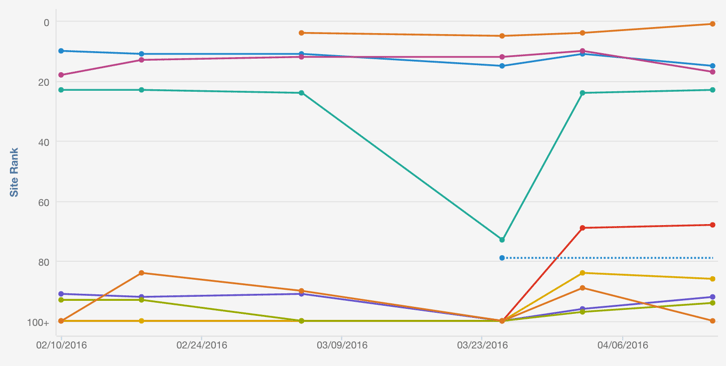Search for topics or resources
Enter your search below and hit enter or click the search icon.
April 21st, 2016
2 min read

You already know better than to stuff your articles and other blog or website content full of meaningless and contextually irrelevant keywords. But after you understand the basics of SEO (search engine optimization), how do you find and use keywords effectively?

When conducting keyword research, narrow down your list to the most specific and targeted options.
When people search for products and services on the Internet, they usually have a good idea of what features and specific applications they are considering. For instance, if you're shopping for a new television, you might search for "50-inch plasma TV" or "Samsung 3D TV." You know that you'll get more relevant results if you're specific in your Google query.
Businesses have to reverse engineer this process. When thinking like a customer, according to HubSpot, you'll get more relevant keywords that feature a higher degree of specificity.
Depending on your business model, HubSpot also recommends using location-based keywords to further narrow down your target audience. If you sell vacuum cleaners in Salt Lake City, Utah, for instance, there's no point drawing traffic from vacuum-lacking consumers in Buffalo, New York.
You don't have to guess when it comes to narrowing down the best keywords for your business. You can use both free and paid keyword research tools to better understand your audience and the items for which they search.
Some of the best-paid research tools include FreshKey, SEMrush, and Longtail PRO. If you're looking for a free option, consider Google's myriad keyword tools as well as free apps like Soovle and Ubersuggest. Each of these tools will help you generate new keyword combinations, compare the search traffic for different keywords, and measure the potential ROI of your choices.

Capitalizing on keyword trends can result in sudden bursts of traffic to your site, which means potential sales.
Sometimes, previously unpopular keywords suddenly become more attractive. It could stem from a recent news story or a sudden development in your industry. Whatever the case, following the trends will enable you to capitalize on them.
The free Google Trends and Keyword Planner tools work well for this purpose. Trends help you learn how search traffic for a particular keyword has changed over a specific period of time, which will provide you with insight into future performance, while Keyword Planner helps you build more precise, effective advertising campaigns.

Speaking of performance, keyword relevance changes all the time. In fact, it can vary from one business to the next, even within the same industry. In addition to researching a keyword's history through research tools, you must also track its performance as you use it in content marketing, display advertising, and other pursuits.
Using HubSpot, for instance, you can use the keywords you track to determine how your rankings in search engines change over time. You can also evaluate your conversion rates based on your SEO efforts, whether you're creating landing pages or blog posts. The more you know about each individual keyword's performance, the easier it becomes to create targeted, meaningful content that delivers conversions.
Even though keyword stuffing has become a taboo subject, keywords for SEO purposes remain a vital part of any content strategy.
Until next time,
Doc
Owner/Head Coach @ Bernco Media. Digital sales & marketing since 1997. Passion for teaching companies to be the most trusted voice in their space. They Ask, You Answer Certified Coach & HubSpot Certified Partner & Trainer. Reversed Type 2 Diabetes doing KETO. Wears Mickey Mouse Daily. Daydreaming of next Disneyland Trip.
Topics: